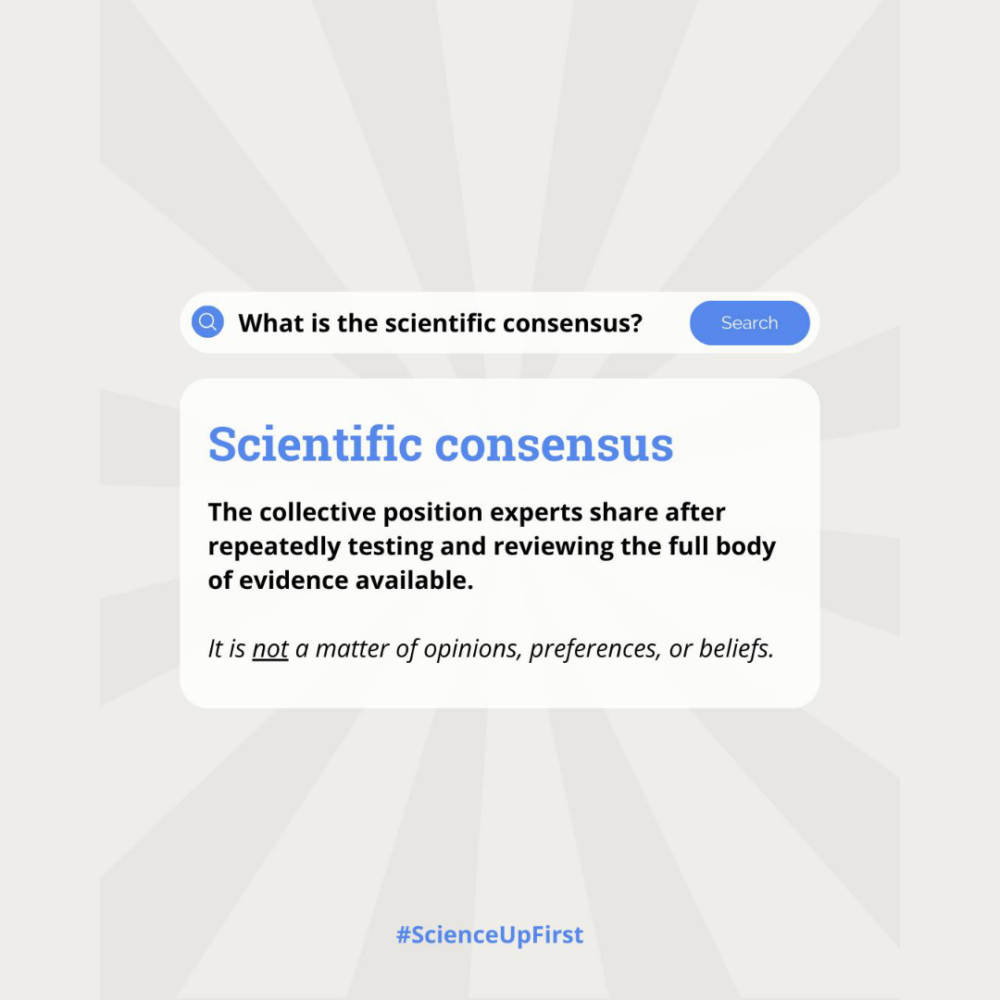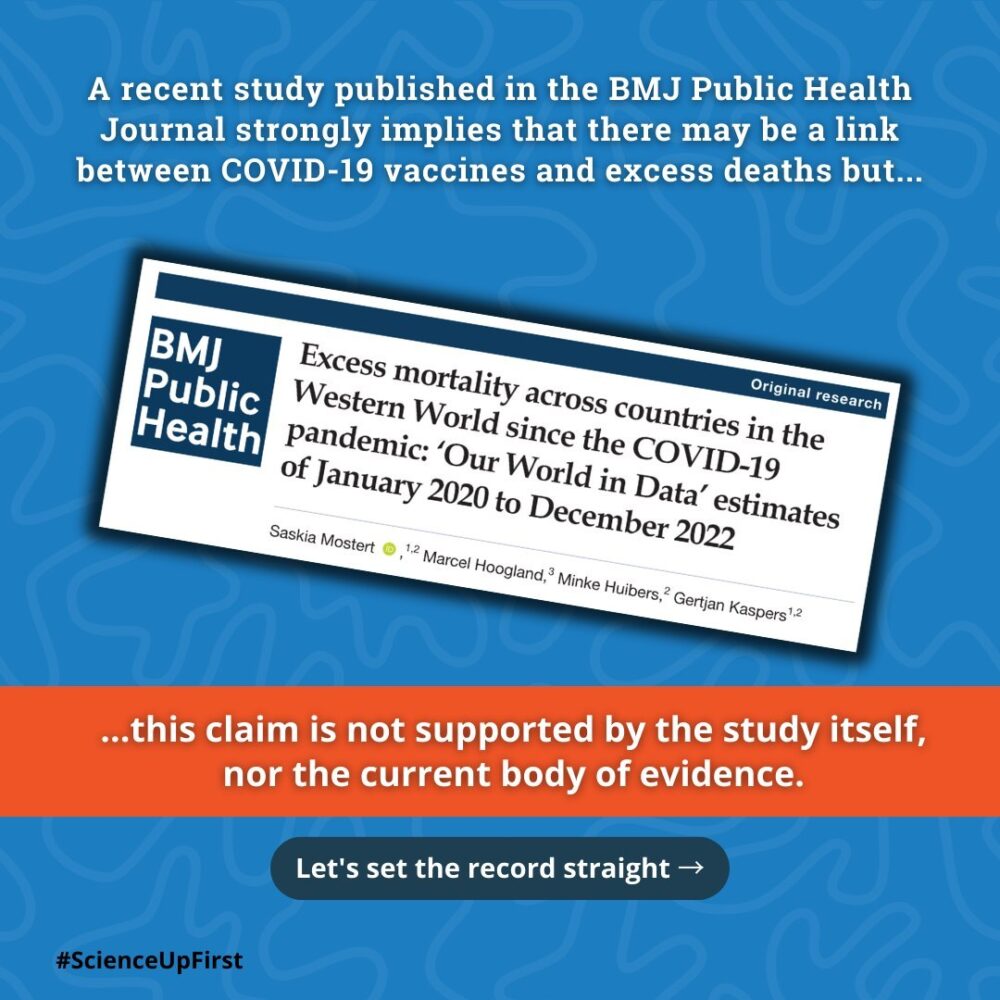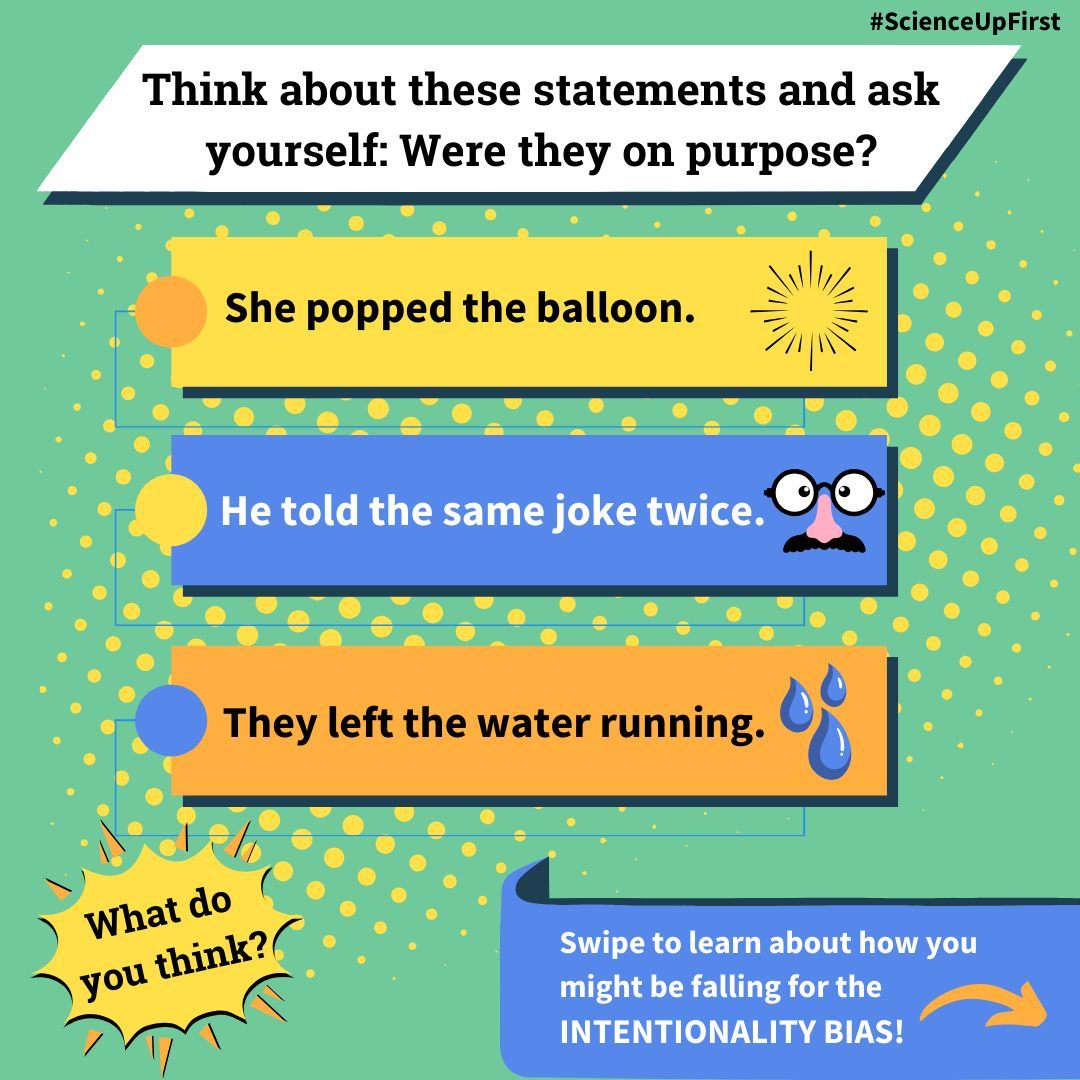
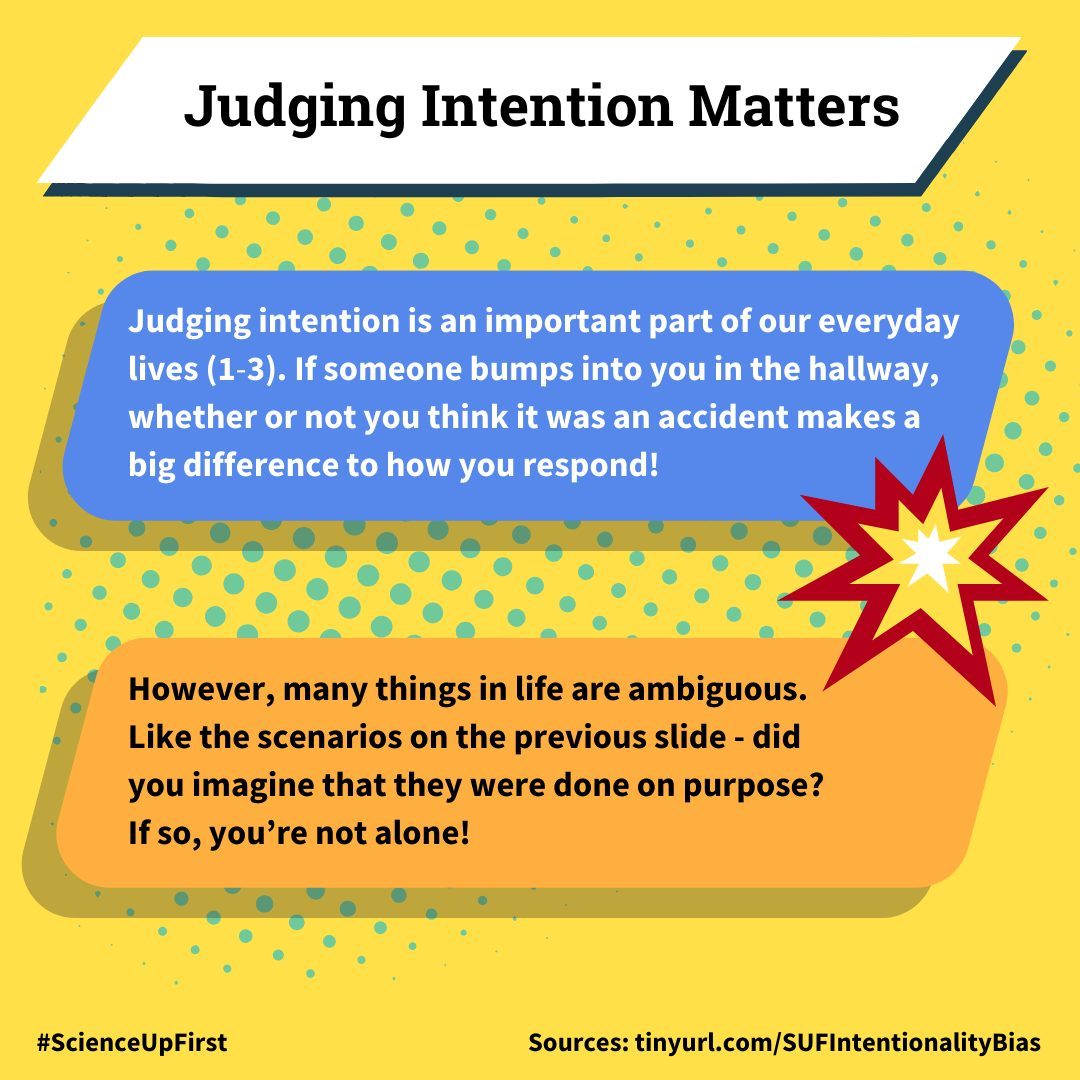
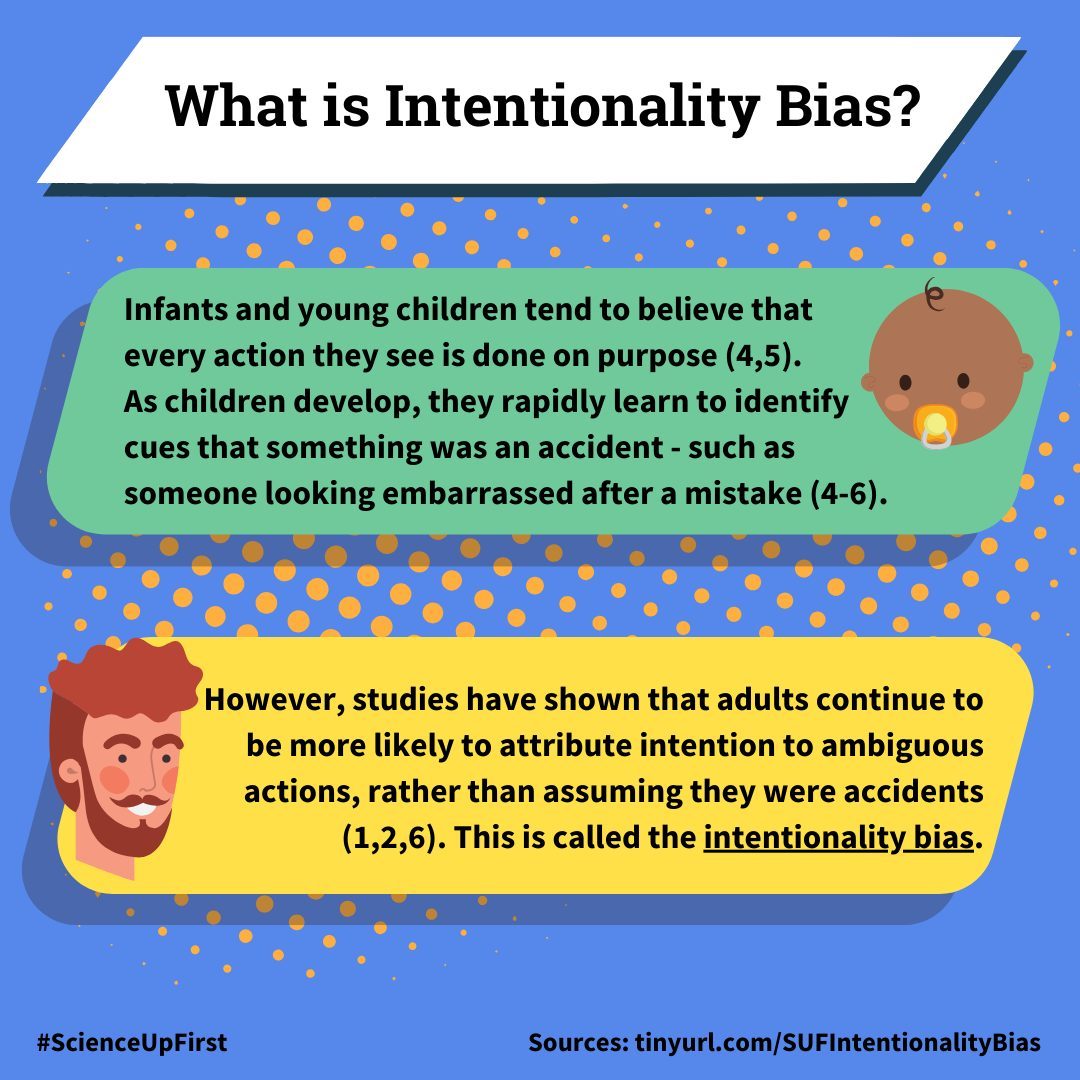
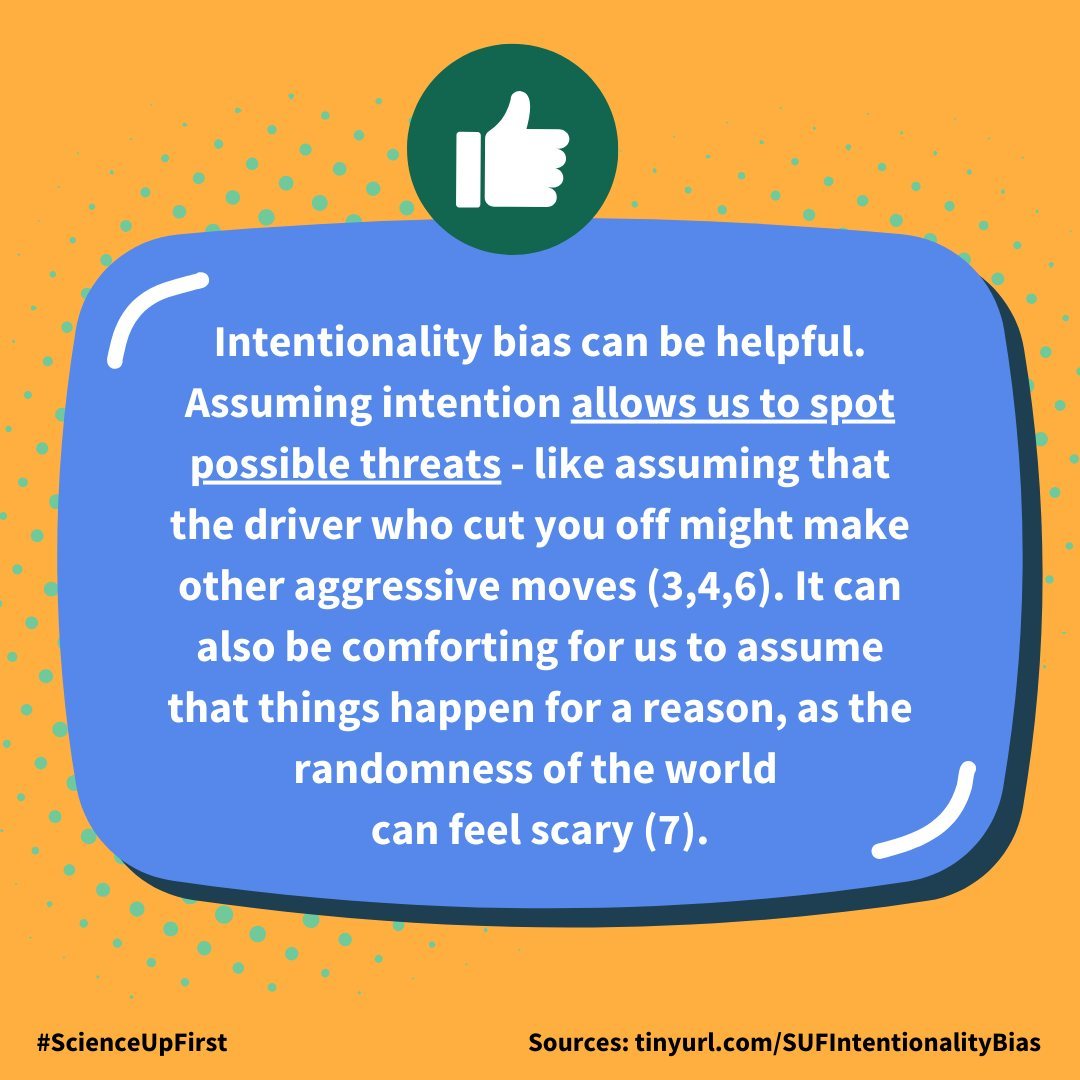
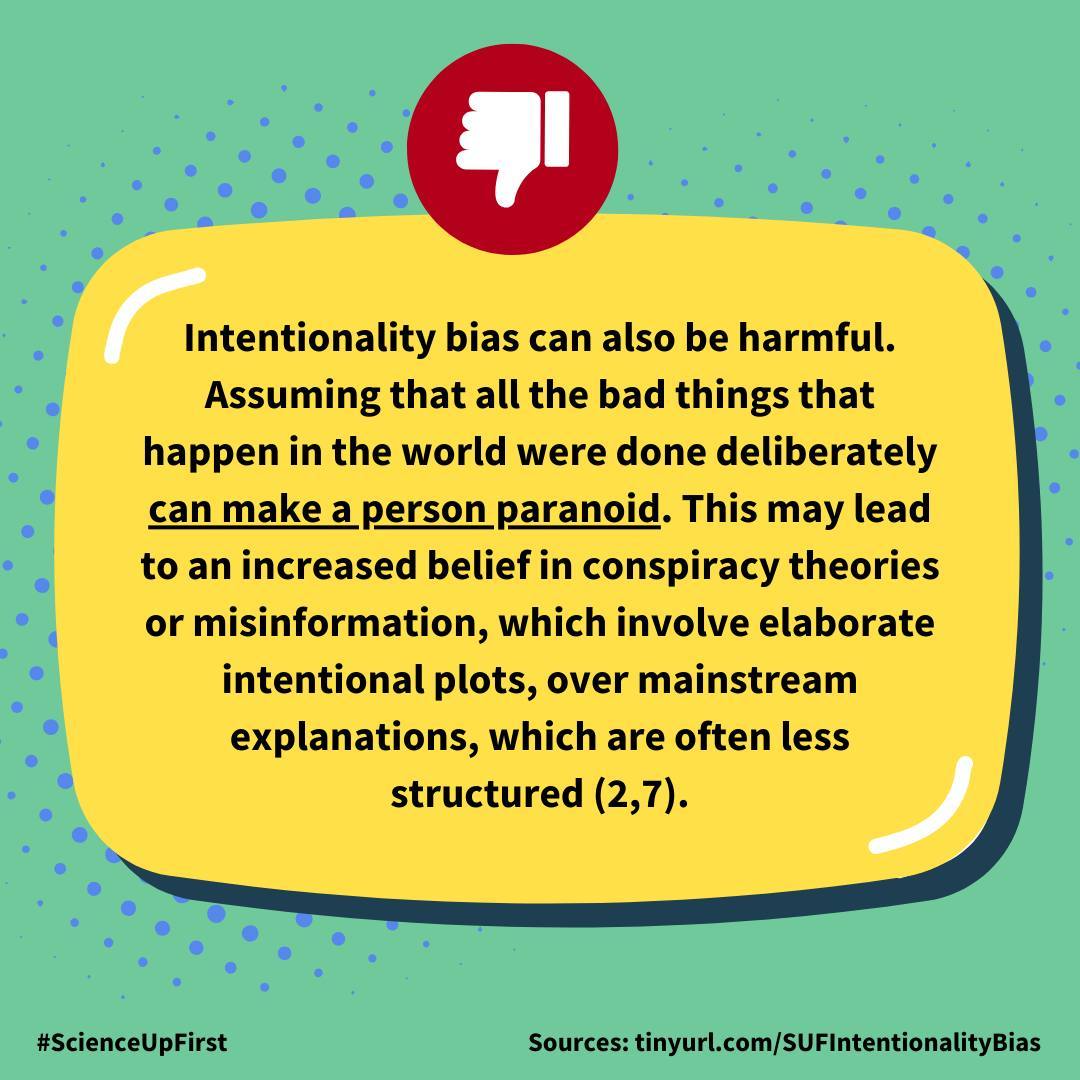
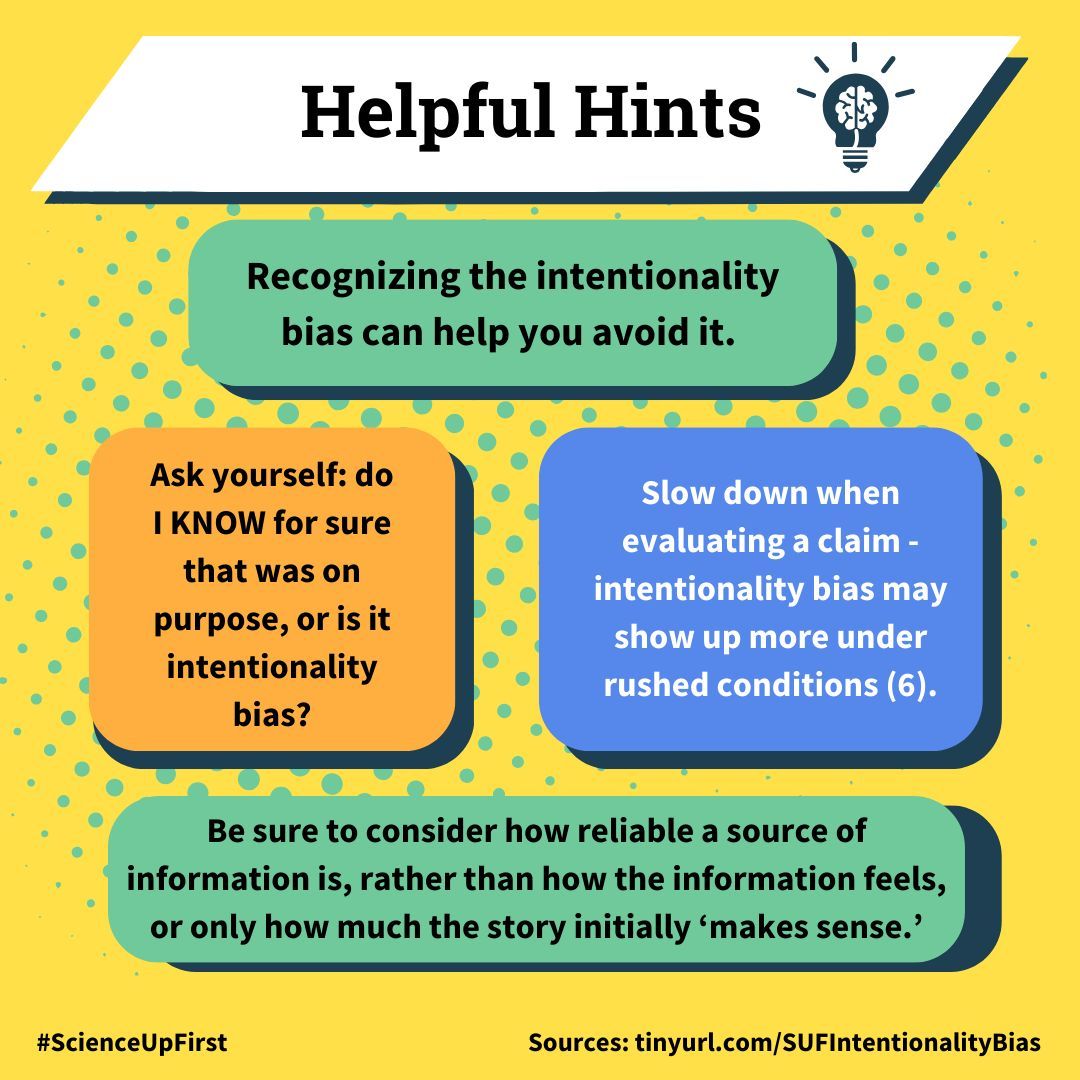
So, in your opinion, were these three statements made on purpose?
You may have fallen victim to intentionality bias. The next time you find yourself in a situation in which you don’t know the other person’s intentions, try to become aware of this bias. Take the time and ask yourself if you are sure that the action is intentional or not.
Consider the reliability of a source of information, rather than the impression the information gives or whether the story makes sense at first glance.
- Individual differences in the intentionality bias and its association with cognitive empathy | Personality and Individual Differences | February 2018
- Intention Seekers: Conspiracist Ideation and Biased Attributions of Intentionality PLoS One | May 2015
- The Folk Concept of Intentionality | Journal of Experimental Social Psychology | March 1997
- Children’s understanding of intentional vs. non-intentional action | Journal of Experimental Social Psychology | 2007
- Young Children’s Understanding of Intention | Cognitive Development | September 1999
- It’s No Accident: Our Bias for Intentional Explanations | Cognition | September 2008
- Is it pathological to believe conspiracy theories? | Transcultural Psychiatry | August 2023
Share our original Tweet!
So, in your opinion, were these three statements made on purpose?
— ScienceUpFirst | LaScienced'Abord (@ScienceUpFirst) November 22, 2024
Tell us in the comments and take the opportunity to learn more about intentionality bias 👉 https://t.co/EZjZY16TR6#ScienceUpFirst pic.twitter.com/3iquV5PwRX
View our original Instagram Post!


